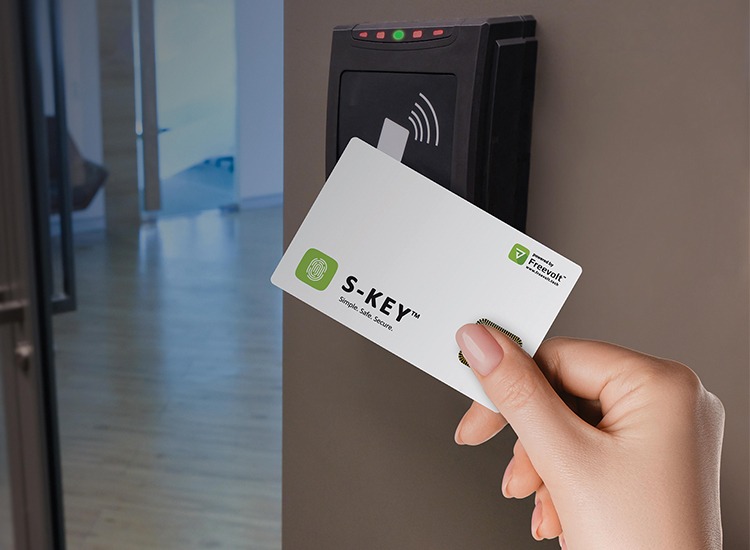How on card biometrics deliver an enhanced access security solution
Gonzalo de Gisbert, Head of Product and Business Development at Freevolt Technologies, looks at the role of biometric data in security innovations, and how the introduction of fingerprint authentication has boosted the role of smart cards in access control.
Access control systems are constantly developing to deliver improved physical security alongside a host of other benefits for premises owners and security personnel. Innovations include the ability to provide bespoke levels of access to different people depending on their job; to offer scalability and easy integration; and even to simplify data protection.
The challenges of implementing biometric authentication
The ability to verify a person’s identity using biometrics has revolutionised access control, from passport control through to log in access on personal devices. Biometric authentication removes the risk of an unauthorised person gaining access – improving security and reducing the risk of costly financial and practical impacts from a security breach.
But using biometric identifiers to control access to organisations and their assets has so far proved difficult for several reasons, principally:
- Biometric readers are expensive to buy and install
- Few systems allow open integration, so vendor lock-in could prove costly
- Data protection is an issue for any system which transmits biometric data, as this is a Special Category under the General Data Protection Regulation (GDPR)
Innovation – fingerprint authentication on a card
One solution is a system that allows biometric data to be stored securely on an access card or badge, kept under an individual’s control, which can verify the presence of that individual to existing card readers.
Freevolt’s innovative S-Key access control card does exactly that, using battery-less technology to power this extra layer of security. This removes the barriers to effective biometric authentication, providing simple and seamless integration with your existing systems. You can:
- Introduce strong two-factor authentication for any part of your organisation, with cost-effective scalability (you pay only for the fingerprint card)
- Establish a single access control system across different locations, even with varying hardware
- Minimise data protection obligations by ensuring that the data never leaves the card.
A safe, secure and hygienic solution
Fingerprint access control cards can also keep personal data secure, as they do not transmit that information to the access control readers. It is important to ensure that any biometric system stores the individual’s fingerprint on the card securely, only revealing non-biometric information (e.g. the card’s ID) to the reader.
By checking that your provider protects personal data in this way, you both improve the user’s personal security and reduce your obligations under data protection legislation.
Of course, fingerprint access control cards have the further advantage that the user need touch nothing but their own card. The pandemic showed us that the less we need to touch keypads, the lower our chances of contamination – and the better our chances of staying healthy for work!
Assessing biometrics on mobile phones
Some companies are moving to biometric authentication (face recognition or fingerprints) via mobile devices to provide access control, mainly due to their convenience. But Gonzalo does not believe this provides effective access security:
“Mobile phones are under the control of their owner, who can add another person’s fingerprint or even resort to a PIN, thus completely negating proper authentication,” he says. “What happens if you run out of charge, or your workplace does not allow phones? A fingerprint-authenticated card which can easily be barred on your system is a much more secure method of access control.”
It is clear that biometric authentication will play a huge role in the future of access control. By choosing wisely, you can enhance security without huge investment, and protect your teams too.
For more information:
t: +44 (0) 203 176 2350


